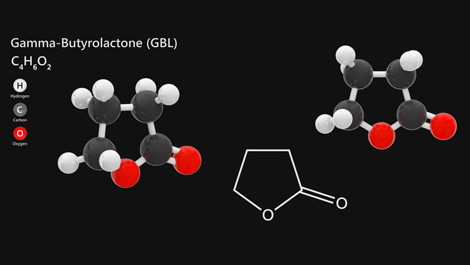Responding to the news about the potential impact on users, resellers and manufacturers of solvent and eco-solvent inks of the UK government’s re-classification of gamma-butyrolactone (GBL) and 1,4 butanediol (1,4-BD), Digital Printer has contacted various vendors and industry bodies for their reactions and more detailed information on which products may be affected.
Here we present their comments, most recent first:
GPMA, posted 25 February 2022
The Graphics & Print Media Alliance has written to minister Kit Malthouse and BEIS parliamentary under-secretary Lee Rowley to explain the extent of the industry in terms of companies, employees and gross turnover and the difficulties that the new licensing requirements will impose. It also points out the exemptions granted in US law for mixtures containing less than 70% GBL (by weight or volume) and the lack of equivalent restrictions within the EU, putting UK companies at a relative disadvantage, while explaining both the economic unfeasibility and technical difficulty of using inks as GBL sources for drug use. The short period for licence application / approval and likely timescale for the development and testing of GBL-free alternative formulations are also highlighted.
The GPMA proposed a range of options for government consideration. These include a delay to the implementation of the legislation to allow for a full consultation; technical evaluation of the ability of illicit users to extract GBL from inks; an extended transitional period to allow for licensing; consultation with ink manufacturers on a realistic timescale fro removing GBL from inks; the setting of a threshold for GBL/ 1,4-BD, below which a licence will not be required; and a registration scheme for companies using the pure substances, which would affect only manufacturers and not the reseller channel or end-users.
The full letter is published on the GPMA website, under ‘statements’.
Canon, posted 8 March 2022
Canon EMEA marketing manager for large format graphics Ismet Özdemir has confirmed that neither GBL nor 1,4BD are present in any of Canon’s current products.
Mutoh Europe, posted 25 February 2022
Mutoh is aware that GBL is on the radar in various regions in the world.
As is the case with many chemicals, they can be exploited for positive as well as for negative applications.
It is certainly true that GBL is a component which contributes positively in inks of which the drying mechanism is based on evaporation of a portion of the ingredients.
Mutoh has already substantially reduced the amounts of GBL in its latest generation Greenguard Gold certified MS31 and MS41 sign & display inks, from high percentages to values below 3% w/w.
Later this year, Mutoh is planning to release a new GBL free ink chemistry designed from scratch, keeping intact and even improving some key properties for in- & outdoor sign and display applications.
Epson, posted 17 February 2022
Epson is deeply concerned about the impact these measures could have not only to its own business, but on its customers and indeed the UK print signage industry as a whole. While we understand and support the Government’s desire to prevent the misuse of a potentially harmful substance, we believe it would be extremely difficult for GBL to be extracted from our ink due to its chemical formulation. We are convinced that the number of businesses and range of products likely to be impacted is far greater than the Government’s initial studies anticipate. We would welcome the opportunity to review with the Government a methodology to introduce licensing that would allow legitimate businesses to continue unimpeded, whilst minimising the potential risk of misuse.
We are already working closely with major industry associations including the IPIA, BPIF, ISAUK, The British Coatings Federation and Picon to highlight the disruption these measures will bring to businesses.
Digital Printer will continue to update this story as we receive further industry responses, so we suggest you bookmark this page if you are concerned that equipment you use may be affected.





